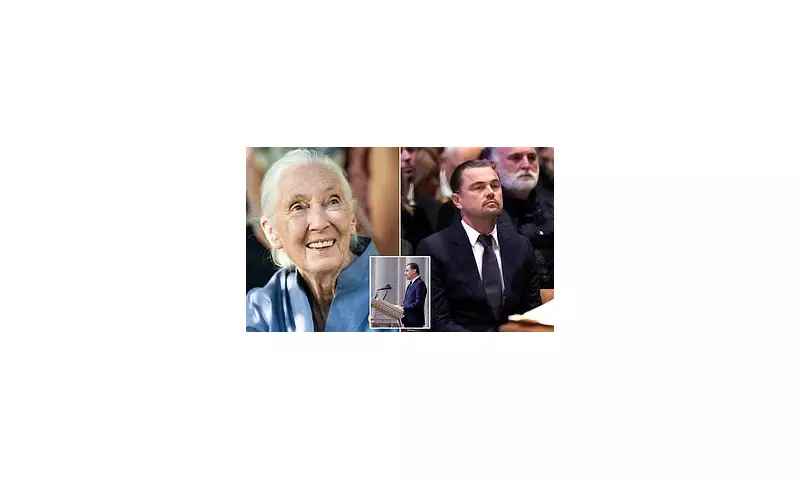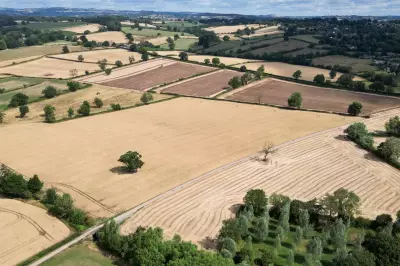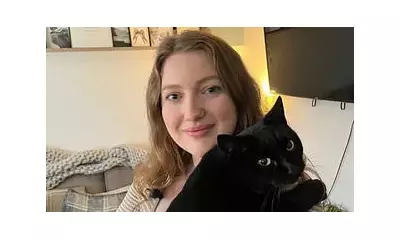
Hollywood actor and environmental activist Leonardo DiCaprio delivered an emotional tribute to the late Dr Jane Goodall during her funeral service at Washington National Cathedral on Wednesday, honouring the renowned scientist as "absolutely unstoppable" and a "dear friend".
A Final Farewell to a Conservation Icon
The funeral for Dr Jane Goodall, the celebrated wildlife conservationist who passed away aged 91, took place on Wednesday morning with family, friends and prominent figures gathering to pay their respects. California Representative Nancy Pelosi joined DiCaprio among the mourners at the Washington DC service.
In a touching scene, therapy dogs lined the cathedral entrance as Dr Goodall's ashes were carried up the steps around 11am. The Jane Goodall Institute had arranged for the non-profit organisation People Animals Love to provide the dogs to comfort attendees, according to CBC reports.
DiCaprio's Personal Memories
DiCaprio, who developed a friendship with Dr Goodall through their shared environmental work, shared heartfelt memories of their time together. "Most people knew her as Jane Goodall, the icon, the legend," the actor said. "But the Jane I was fortunate enough to get to know was gentle, curious, funny, witty, and absolutely unstoppable."
The Oscar-winning star described late-night conversations with the scientist, recalling how they would talk "late into the night about politics, biodiversity and the next generation over a whiskey". He emphasised her unique perspective on environmental challenges, noting that while "most of us think about environmental issues we tend to dwell on destruction and loss", Goodall "never lingered in despair. She focused on what could be done."
DiCaprio added: "She could be clear-eyed, even blunt about the greed and relentless consumption of our species, but beneath that fierce honesty was an unwavering faith that every voice matters, that we are all connected to the living world and that each of us can make a difference."
Family Tributes and Lasting Legacy
Dr Goodall is survived by her son Hugo and three grandchildren, one of whom, Merlin van Lawick, addressed the service. He remembered his grandmother as someone who "constantly reminded us that life is full of wonders, an interconnected tapestry of diverse creatures".
According to CBC, he concluded that her spirit leaves a message that "together we can, together we will and together we must change the world".
Dr Jane Goodall died peacefully in her sleep from cardiac arrest on October 1st while in California during her speaking tour of the United States. The Jane Goodall Institute confirmed her passing, writing in a tribute: "Dr Goodall's discoveries as an ethologist transformed science, and she was a tireless advocate for the protection and restoration of the natural world."
Anna Rathmann, Executive Director of the Jane Goodall Institute USA, described Goodall as someone who "exemplified human compassion, love and kindness" and "possessed a lively sense of humor, a genuine, demonstrated empathy towards others, and she felt responsibility to advocate for animals, people, and the environment".
Rathmann emphasised that Goodall's work is "not done", adding: "Together we will honour her memory with the people whose lives she touched, who were filled with hope by her messages, and who were inspired to take action to protect wildlife and the natural world."
From Humble Beginnings to Global Influence
Born in London in 1934, Goodall grew up in Bournemouth and faced significant barriers as a woman aspiring to become a scientist in the mid-20th century. "There was no thought of becoming a scientist because girls weren't scientists in those days," she once recalled. "And actually there weren't really any men going out there living in the wild."
Her passion for animals and Africa was sparked by fiction, particularly the Dr Dolittle books and Tarzan novels. "I got my love of animals from the Dr Dolittle books and my love of Africa from the Tarzan novels," she said in 2019. "I remember my mum taking me to the first Tarzan film and bursting into tears."
Goodall credited her mother, novelist Margaret Myfanwe Joseph, with encouraging her to pursue a career in the male-dominated field of primatology.
At just 26 years old, Goodall travelled to what is now Tanzania with minimal equipment – essentially a notebook and binoculars – beginning six decades of groundbreaking research that would revolutionise our understanding of chimpanzees. Her early fascination with primates began when her father gave her a toy chimpanzee named Jubilee instead of a traditional teddy bear.
After leaving Uplands School in Poole in 1952, Goodall worked as a secretary at Oxford University before contacting notable archaeologist Louis Leakey while visiting a friend's family farm in Kenya. Leakey hired her as his secretary when she was 23, and in 1960 she began her seminal research at Gombe National Park.
Seventeen years later, she founded the Jane Goodall Institute to support ongoing research in Gombe and protect chimpanzee populations. The institute continues her work today, supporting both wildlife conservation and youth environmental projects worldwide.





